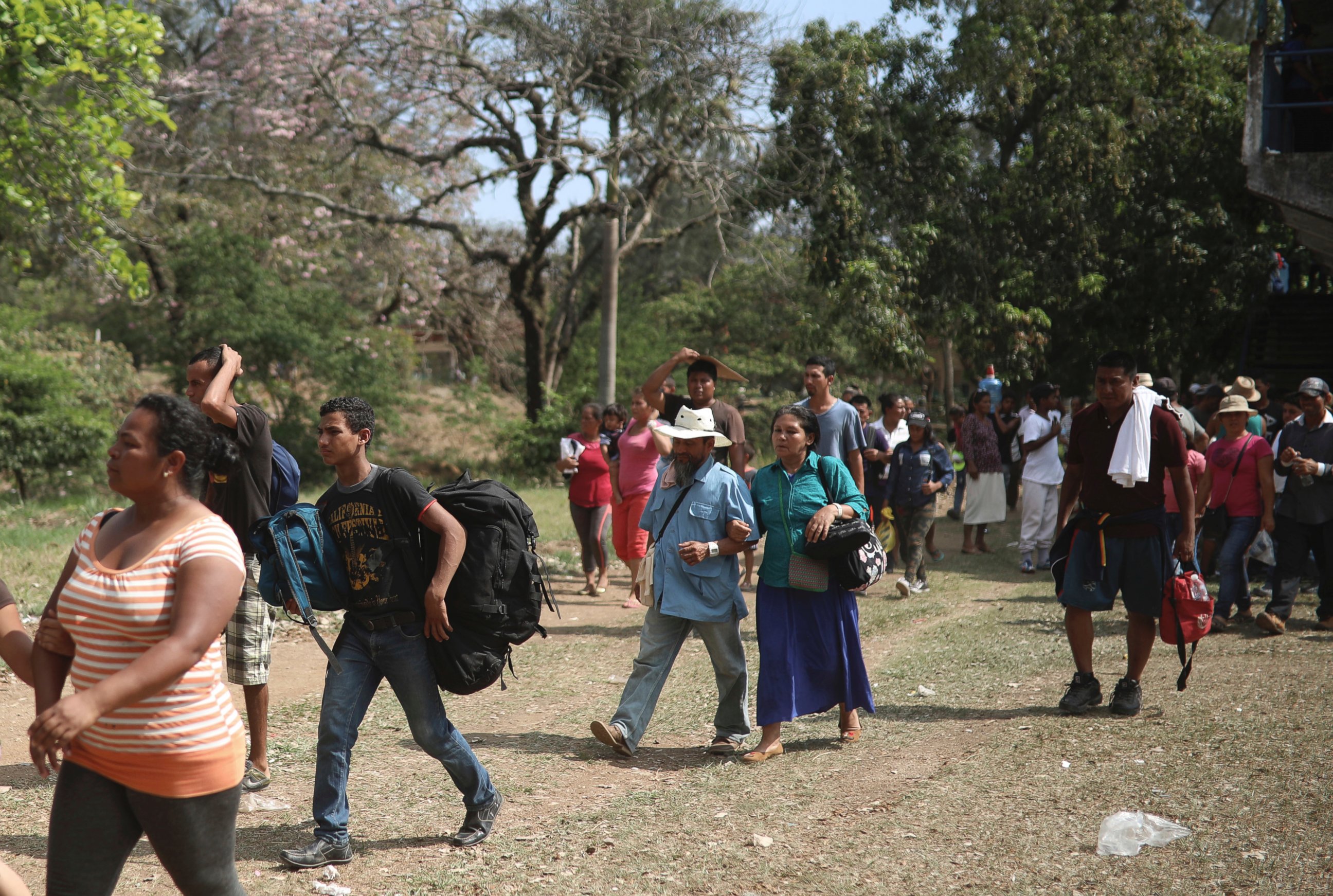Amid pressure from Trump, Mexico says it's dealing with migrant 'caravan'
An organizer said the march is trying to draw attention to the right to asylum.
After two days of tweets from President Donald Trump on a "caravan" of migrants traveling through Mexico, the Mexican government has said it is dealing with the hundreds of Central Americans making the trek.
The Mexican government said late Monday it had already sent back around 400 marchers to their home countries -- an organizer said Tuesday there were around 1,000 Central American participants, largely from Honduras -- "with strict adherence to the legal framework and full respect for their human rights." It was unclear, though, when those people had been repatriated, or if it was in response to recent pressure.
The group organizing the march, Pueblo Sin Fronteras, told ABC News on Tuesday that the Mexican government on Monday had started meeting with all of the participants and issued them transit or humanitarian visas. Mexico said in its Monday statement that the participants had entered Mexico "without meeting the requirements of law" and would thus be "subject to an administrative immigration procedure."

No one had been arrested or detained Monday or Tuesday, Alex Mensing, a project coordinator for the group, told ABC News. He said he was not sure what the 400 deportations claim referred to.
With their new paperwork, the "caravan" participants may decide to peel off from the group, but it was unclear how many would do so, Mensing said.
While similar migrant marches have taken place previously, the statement from Mexico's interior ministry said that unlike in past years, the Mexican government would offer refugee status to the Central Americans, when appropriate. Organizers of the march said many of the participants had already planned to claim asylum in Mexico or the United States, through legal, official channels.
Pueblo Sin Fronteras, which assists migrants and refugees, said it hoped the march would draw attention to the issues of the right to seek asylum and the right to seek refuge. Mexico said it viewed the march in this light, as a "public demonstration" that takes place annually.
The current "caravan" set off on March 25 from a city near Mexico's southern border with Guatemala and on Tuesday it was in the town of Matías Romero, in Mexico's Oaxaca state, southeast of Mexico City, according to Pubelo Sin Fronteras. Mensing said the group did not expect to reach the U.S. border for three more weeks. The number of participants this time was "unprecedented," Pueblo Sin Fronteras said in a statement Monday.
After Fox News anchors over the weekend discussed a BuzzFeed article about the march, Trump fired off a series of tweets accusing Mexico of not doing enough to stop the march and tying it to the United States' Deferred Action for Childhood Arrivals (DACA) program, which protects people who came to the U.S. as children and remained illegally.
Mexico's foreign minister pushed back Sunday, tweeting, "Every day Mexico and the U.S. work together on migration throughout the region."
On Tuesday morning, Trump threatened that the march "had better be stopped before it" reached the U.S. border.
The Mexican government said Monday night, if members of the "caravan" reached any U.S. ports of entry, it would be up to American authorities to decide whether to let them enter the country.
It was not the job of the Mexican government, it said, "to exercise immigration decisions of the United States or any other nation, so it will be the competent authorities of the United States that decide, if appropriate, to authorize or not the entry to its territory of the members of the caravan who request it through the authorized entry and exit ports."
The march, versions of which have happened on and off since 2010 -- including twice last year -- will conclude at an official port of entry in California, Arizona or New Mexico, depending on train schedules, Mensing told ABC News this weekend.
Also late Monday, the organizers, Pueblo Sin Fronteras, said it continued to stand with "displaced people" despite Trump's "bullying."
It said the newfound attention on the march has led "right-wing white surpremacists" to threaten and call for violence against the marchers and its supporters, including "personally with hate-filled phone calls and emails" and calls to open fire and carry out drone strikes on them.
"On April 1, the U.S. President opportunistically invoked refugee caravans as a pretext for threatening immigrants already in the country, specifically DACA recipients, with a so-called 'Nuclear Option' to remove their protections from detention and deportation," Pueblo Sin Fronteras said in its statement, referring to a legislative move Trump has backed. "Trump is trying to turn Central American refugees and other immigrant communities against each other, and use them as a bargaining chip with Mexico."
"In the face of this bullying and these threats of mass violence," the group continued, "we continue to stand in solidarity with displaced people of all races, ethnicities, creeds, abilities, and gender and sexual identities. We invite all those who envision a world where human rights are honored to join us."
ABC News' Joshua Hoyos contributed to this report.




